What do you study?
I’m majoring in Human Geography and International Studies, with a certificate in African Studies. I also take military science courses as a cadet in Army ROTC.
In what ways is Geography the best discipline for your intended work?
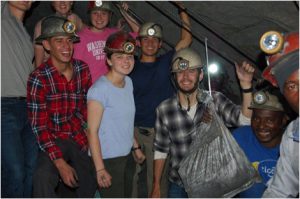
I hope to be an Army Foreign Area Officer (FAO) for Swahili-speaking Africa. FAOs are like the Foreign Service for the military, and they work with host countries’ governments, militaries and civilian institutions to cooperatively accomplish our defense goals.
Human Geography enables us to understand that the problems humanity faces do not occur in a vacuum, but are deeply rooted in place and environment. Learning how humans change and are changed by their sense of place is crucial to understanding their motivations and working cooperatively across cultures.
What led you to UW-Madison to study geography?
I was undecided until I took GEOG 139: Living in the Global Environment: An Introduction to People-Environment Geography with Professor Morgan Robertson my freshman year. I had always been interested in government policy, and with the multidisciplinary, multiscalar methods of Geography I saw how policies are carried out from writing in international treaties to effects on poor tropical farmers. Geography seemed like the field that could best link policy with lived human experience, which is important to study as someone going into public service.
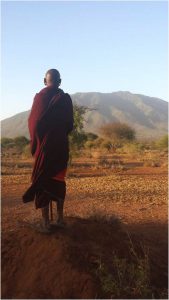
How did you decide on studying abroad?
I began studying Swahili my sophomore year, and I was surprised at how much better college is at teaching language than high school. I was really enjoying it and looking for ways to make the most of it. I found that Army ROTC considers Swahili a “critical” language, and offers a fully-funded study abroad opportunity for it in Tanzania. The study abroad was part Swahili and part Geography, and coincidentally Madison has some of the best programs in the country for each. The application was competitive, but Madison had done me well.
Can you describe your study abroad experience?
It was an interesting mix of being in the most beautiful places I’ve ever visited while steadily studying myself to death. Over two months we visited some of the most important conservation sites in the world, including the Serengeti, Ngorongoro Crater and Lake Victoria, while reading about them and writing about our own experiences. The highlight of my study abroad was definitely staying with a Maasai family in the savannah, living in a compound of huts called a boma. When we weren’t having fun looking for giraffes or listening to stories from our host father (an excellent storyteller), we learned about our host family’s lifestyle and how it was affected by climate change and other conservation issues.
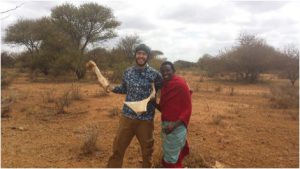
What was your biggest take-away?
The world over, the hospitality industry will allow you to live comfortably in a Western bubble, making an 8,000-mile journey abroad indistinguishable from a vacation to, say, Florida. Although this is fine, never confuse a vacation for a learning experience. A learning experience will challenge and change you. Every day abroad I asked myself, “What can I do here and nowhere else?” If you cannot answer that question, you could be doing the same thing for much cheaper back home.
Why is it important to have geographers out in the world?
Geographers aren’t single-minded. They have the training to analyze situations visually, through mapping; physically, through understanding Earth systems; and environmentally and humanistically by knowing the right questions to ask of an environment and its people. Geographers do not cloister themselves in the minutiae of one specific field, but hope to capture the fullest possible understandings of places with all available tools. We need more of this thinking in the world to better understand the downstream effects of any policy or decision – to ensure we do more good than harm.
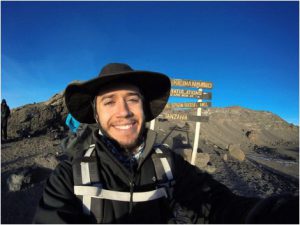
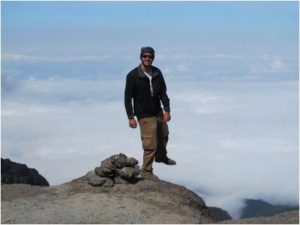
What is one fun fact about yourself?
I didn’t mention it earlier, but I arrived in-country early on my study abroad and totally climbed Mt. Kilimanjaro. Heck of a mountain.